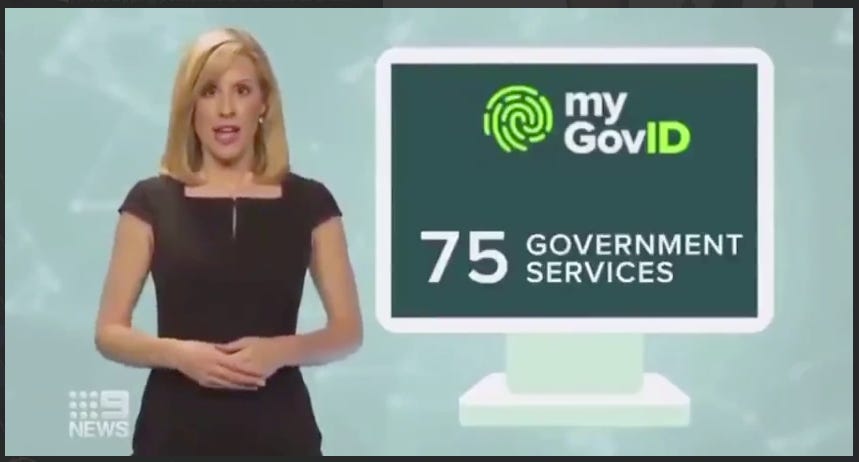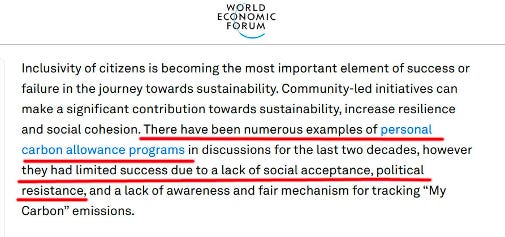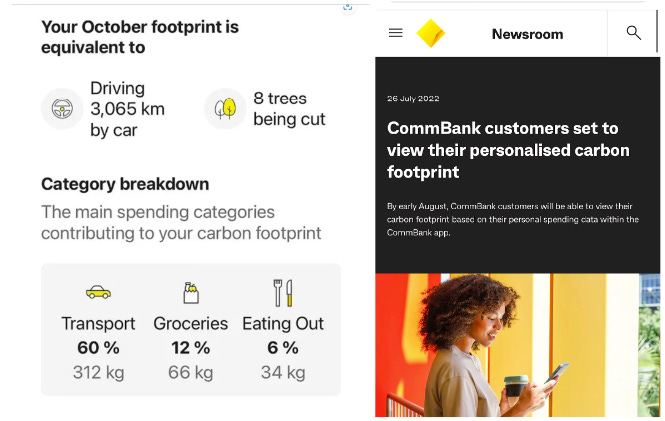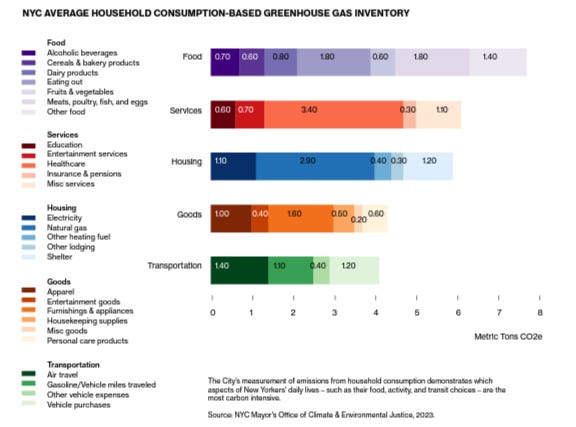🇪🇺 The European Union – Moving Towards CBDC

Last month, a prank video by two podcasters called Van and Lexus posing as Volodymyr Zelensky, the president of Ukraine, who pulled a fast one on Christine Lagarde, the president of the European Central Bank (ECB), was uploaded to the web. In the video, Lagarde generously shares information with “Zelensky” regarding the European Union’s plans for the digital currency; It confirms that they intend to approve the digital euro project on behalf of the central bank (CBDC); The final decision date is October 2023, and they are preparing for it.
“There will be control”
Lagarde continued to reveal that the purpose of the new digital currency is indeed to implement control: to control the payments that people can make.
“Zelensky” discusses with Lagarde the backlash of European citizens regarding the introduction of the digital euro and adds that “the problem is that they don’t want to be controlled” in that way, Lagarde admits, “There will be control, you are right. We are considering the possibility of instituting a mechanism with zero control for smaller sums of up to 300-400 euros.”
“However,” she added, “it can be dangerous, since very small transactions, completely anonymous, can finance terrorist attacks like those we saw ten years ago in France.”
Another argument of Lagarde in favour of the CBDC, is that they do not want Europe to depend on “the currency of an unfriendly country”, such as the Chinese or Russian currency or “on a friendly currency that is operated by a private corporate entity like Meta (Facebook) or Google” that can “take over the sovereignty of Europe”.
It sounds like the people pulling the strings have already justified the launch of the digital euro, and are now busy strengthening their lobby, in order to sanction the abomination and gather all the necessary support by this October. Another interesting detail is that Christine Lagarde was found guilty of misuse of public funds (2016, France) because she approved a massive payment of taxpayers’ money to the controversial French businessman Bernard Tapie, when she was Minister of Finance in the Sarkozy government. Surprisingly, she was spared a prison sentence and was neither fined nor penalised, despite having been found guilty.
🇺🇸 USA – Opposition to CBDC, Fighting Crypto & Bitcoin
At the same time, the introduction of central bank digital currency is progressing relatively quickly in other countries around the world. The Governor of South Dakota, Kristi Noem, recently vetoed a bill which outlaws crypto-currencies and bitcoin, and at the same time paves the way for the launch of CBDC. Noem says in an interview for Fox News that she and her team read the entire long bill and understood that it means denying the autonomy of Sth. Dakota citizens to choose the way in which they will use their money, and therefore vetoed it, in order to continue respecting civil rights and the American Constitution, above any law or authority from another institution. Noem emphasized that her role is to protect the citizens – a statement not frequently made these days.

The Governor of Florida, Ron DeSantis, as well as the new candidate for the US presidency, Robert F. Kennedy Jr., recently issued public statements against the initiative to launch CBDC for the citizens of Florida and the US respectively.
🇮🇱 Israel – Sharing 5 Scenarios for the Launch of CBDC
Last month we were informed by the Bank for International Settlements (BIS), which is the central bank of central banks, the big big brother of money in the world, that the “Ice Breaker” project was successfully completed; “Ice Breaker” is a project to prove the feasibility of international payments using CBDCs between Israel, Norway and Sweden.
The successful completion of this project teaches us that Israel has already developed its CBDC infrastructure, or at least it is in very advanced stages, otherwise it would not have been able to participate in such a project, which was even crowned a success. Was there a discussion with the public about the digital Shekel? Were the benefits and risks clearly explained to us? Does anyone even ask us? It seems that there is an interest here to develop and launch a huge change in the rules and tools of the game, without a wide public discussion. It also feels like Israel does not waste precious time, and the important stuff is happening swiftly and discreetly.
To further prove that point, a few days ago in Israel, a press release was issued by the Bank of Israel describing the possible events that, were they to occur, would lead to a decision to launch of the central bank’s digital shekel, and informed the public that the steering committee is preparing and readying the Bank of Israel for the issuing of the digital shekel if, as mentioned, these events actually become a reality.
In other words, the Bank of Israel is preparing us, the public, that the issuance of the digital shekel will only be a matter of time considering global developments in the field. In the announcement, five reasons for the expedition and acceleration of the digital currency are explained:
1) The need to keep up with other countries issuing CBDCs.
2) The future reduction cash usage as a means of payment, while expanding the use of payment apps and electronic means of payment in general.
3) The prevalence of payment in stable coins [such as crypto or bitcoin – EF] or in other private means of payment (meaning that is not a digital shekel) might impede the payment system.
4) The issuance of a digital currency by the central bank would support competition in the payment system and in the financial system in the digital age.
5) The issuance of a digital shekel could be justified with hindsight, since it could provide an efficient and safe platform for advanced technological applications.
The official document accompanying the press release expands on these projected scenarios but does not touch at all on the threat CBDCs pose to civil rights, including infringement on privacy, the curtailing of civil autonomy, and increased control of citizens. The only reference in the document to any risk concerns damage to the Israeli banking system.
🇦🇺 🇬🇧 Australia and Britain – Cancelling Cash
Last month the ANZ bank, Australia’s second largest bank, has removed the cash withdrawal facility in its branches and has begun the removal of ATMs all over Australia, as part of the move towards a cashless society model. Britain, too, has accelerated the cashless model with many businesses in London refusing to accept cash. A vast number of citizens has become accustomed to the new model and in any event have been using credit cards, google pay or apple pay, while various biometric means of payment are becoming a reality. As soon as CBDCs become a reality in these countries, everything will fall into place neatly and the “conspiracy theory” claiming that central control over every aspect of our lives including money, health, carbon emission limitations, social credit system, flights, transportation and more will be realised.
🌎 World Status and the Dangers of CBDC
As of today, 11 countries have introduced a digital currency, all the G-7 are developing them and 18 of the G-20 are in advanced development stages of CBDCs.
“According to the Atlantic Council’s Central Bank Digital Currency Tracker, 112 countries, representing over 95 percent of global GDP, are exploring a CBDC”, writes KANEKOATHEGREAT.
It is important to stress the inherent dangers of this type of currency – from the invasion of our privacy to curtailing free choice in spending. CBDCs enable surveillance and monitoring of every financial transaction, as well as limiting and controlling the use of money even within time constraints. For example, if you were to put more petrol in your car than your weekly approved allocation, your option of refueling your tank will be closed for this week. If you bought “too much” meat, you would find that you are unable to purchase more of it, should you so desire. The control CBDCs place in the hands of the authorities is infinite; if you demonstrate against or share content critical of the authorities, big brother will be able to limit or close your bank account, as the Canadian government proved during the truckers’ freedom convoy in 2022. The method is obvious – micro level control over every facet of our lives, as was explained by Augustin Carstens, CEO of the Bank of International Services? (BIS): “with CBDCs central banks will have complete control over the rules and regulations determining the use and realisation of this system, the responsibility for its running, and the technological ability to enforce it.”
The most pressing and vexing issue we are facing is the public’s complete lack of awareness of its dangers, and the fact that naïve populations are being channelled into adopting CBDCs, without full disclosure by the authorities manipulating them. By the time this system is up and running it will be too late, the populace will have no real power to oppose it.
Continue Reading: CBDC – Where we’re heading with Central Bank Digital Currencies ( https://efrat.substack.com/p/cbdc-where-were-heading-with-central )
🌎 Are Cyber-Attacks Preparing the Ground for CBDCs?
Whitney Webb, writer and journalist specialising in the Jeffrey Epstein scandal and deep state, in an interview with Natalie Brunell on her show “Hard Money” (I recommend watching), expounded on her interpretation of the “hunt” of crypto currencies and bitcoin in particular, being conducted by governments around the world. According to her, crypto currencies are being purposefully derided in order to prepare the world for CBDCs.
Webb quotes the Biden administrations warnings that the high value of bitcoin is the central driver of cybercrime. This claim is baseless according to Webb. It is taken from the WEF policy statement, which presents crypto as a threat, thereby justifying the blanket monitoring of the web and a completely controlled financial system. Their goal is the erasure of financial privacy in favour of the full adoption of CBDCs according to her.
At the same time the WEF is pushing forward with the idea of linking a digital ID to the financial system, which is already happening around the world. Back in the Obama era, a “digital driver’s license” was issued in the US; In the European Union, the United Kingdom and Australia, the initiative for a digital identity card has been accelerated in the last two years, since Covid. It is important to remember that this is a relatively new and sensitive issue because, unlike the practice in Israel, in these countries it was not customary to issue and regularly carry an identity card, nor to register with it for various services. In Israel, as mentioned, the practice exists and the systems are already digital – the identity card and passport gradually became biometric and our medical files are computerized and digital – let’s not forget how proud Binyamin Netanyahu was of this fact, which helped him obtain the deal with Pfizer, purchase the Pfizer vaccines and make all our digital information available to the company.
Webb also mentions that it is important to look at the issue from a broader perspective, and to understand that it is not only the purview of states to promote and initiate the issuance of digital identity cards; this is also a policy of the cyber group of the World Economic Forum called “WEF partnership against cybercrimes”. This partnership includes not only the intelligence agencies and governments of the US and other countries, but also the largest financial services companies in the world, such as PayPal and MasterCard, and the largest banks in the world, such as Bank of America and the World Bank. The group’s goal is to completely eradicate privacy from the digital financial world.
“It only takes one significant cyber-attack to realize that citizens’ personal information is at risk, so that they will beg the government to protect them online and provide them with a safer and more secure Internet,” says Webb. As a perfect solution, the countries of the world will then pull out the digital currency as the safe answer that will save the weak citizens from future cyber-attacks and provide them with a secure government internet and financial system. As mentioned, a large part of this threating sequence of events is designed to damage the reputation of decentralized cryptocurrencies that are difficult for governments to control, and pose a threat to them and their centralized CBDC systems.
🇮🇱 Israel – Cyber-Attacks as a Source of Anxiety?
In Israel, several cyber-attacks by Iranian hackers were recorded this month, according to reports, as part of the #opisrael operation that occurs every year around April 7th. They’ve attacked banks, the Post Office Bank, the Electric Company, the water company and other institutions. Some mainstream media hailed the attacks as a success, the reports on them were extensive and even hysterical. Despite the fact that they were minor attacks and caused little damage, the media succeeded in promoting anxiety in the population.
ificant anxieties, can be easily nudged into a state of anxiety by constantly reminding them that others are anxious and that we live in frightening times.
🇦🇺 Serious Cyber-Attacks in Australia
In September 2022, there was an unusual cyber-attack on the Australian communications company Optus, in which the personal details of about ten million citizens were leaked on the internet. A month later, another cyber-attack occurred on the Medibank Private insurance company, and the details of about ten million customers were leaked online. According to mainstream media reports, this was an attack by Russian hackers.
As anticipated, the attack and the panicked media reaction led to the presentation of the government’s solution. The narrative promoted by the media was – your information and your digital identity online are not safe. They must be protected and put in the hands of a responsible adult. And as if by sheer chance, immediately after the attacks, the Australian government stepped up its campaign to promote the secure government service and the new application called myGov, which includes a digital identity card and a digital wallet, which have biometric capabilities. The UK Guardian reported: “The Australian government will use myGov to centralize digital identity verification following the cyber-attacks and data leak.”

“This move to accelerate the adoption of myGov “was also driven by security concerns, after some government agencies were marked as targets for ransomware attacks and blackmail attempts.”
Australian minister Bill Shorten said that “The myGov platform will limit the need for organizations and individual providers to collect and store personal data” – in other words, we will allow the government to collect and hold all the data and the sources of citizen control. What could go wrong?
In November 2022, the Australian government reported that the Covid vaccination status is an important part of myGov’s service, since in the future, if the restrictions return, the information on the subject will make life easier for citizens who want to fly, enter businesses, etc. By the time the report came out, about two million Australians had registered on the platform, and the campaign is continuing even more vigorously these days.
🇧🇷 🇦🇺 🌎 Brazil & Australia – Harnessing Climate Agenda to Banking Model
In a study published in 2021 in the journal nature, the authors raise the concept of a personal carbon allowance linked to consumption and recommend that this become a “national mandatory policy”, especially in developed countries. Carbon units “will be deducted from the personal budget with each payment of fuel for transportation, home heating and electricity bills.” Anyone who exceeds the limit will be forced to purchase additional units in the personal carbon market from those who have a surplus to sell.” The rich will, of course, be able to easily afford the offsets; moreover, many of them are invested directly in the trading mechanisms on which the program will be based.
The authors point out that mass compliance with lockdowns and Covid regulations have paved the way for further invasive tyranny, so “people may be more willing to accept the monitoring and restrictions associated with the personal carbon allowance to achieve a safer climate.”
The Historian turned celebrity-futurist and WEF advisor, Prof. Yuval Noah Harari also suggests that the totalitarian restrictions implemented in response to the pandemic, including stopping all flights and locking down entire countries, will make people “more open to radical ideas about how to deal with climate change.”
In his recent article, the blogger Igor Khodov reminds us the World Economic Forum’s article called “My Carbon” from September 2022, proposing to track individual carbon consumption and set carbon allowances.
- “The WEF explains that tracking individual choices was always met with resistance. Fortunately for the WEF, the Covid pandemic, caused by a mysterious lab-made pathogen, changed this calculation and, according to the WEF, allowed us to extend “pandemic measures” into consumption tracking due to greater social acceptance of the governmental intrusion into our personal lives:

🇦🇺 In Australia, new banking initiatives are emerging regarding the monitoring of carbon emissions of citizens through bank applications. 🇧🇷 The same trend is also observed in Brazil: in the Brazilian C6 bank there is daily monitoring of carbon emissions in the citizens’ personal bank application, as reported by Dr. Simon Goddek.
This raises the question – if they do not intend to take any action, why, then, are they reflecting these indicators to the citizens?
The link that financial institutions, organizations and companies are making between consumption and carbon emissions is becoming normalized, preparing the ground for a variety of restrictions on purchases or actions that exceed the individual’s “carbon allowance”. Since the required action for dealing with the climate crisis is monitoring and limiting the use of money, there will be a clear definition of what and how much is allowed to be consumed in a specified time frame and what is not allowed to be purchased at all.


🇺🇸 New York: Climate Agenda Enters Plate and Pocket
The City of New York has pledged to reduce emissions from food consumption by 33% by 2030 to combat climate change. Not surprising then, that on April 17, 2023, New York City announced its plan to monitor the “food choices” of New Yorkers using credit card data from store purchases. In this manner the city of New York is joining forces with American Express and tracking the purchases of the city dwellers to calculate their carbon footprints. According to Mayor Eric Adams monitoring the food choices of residents is a step towards “reducing the CO2 emissions” of New Yorkers.

“It’s easy to talk about vehicle emissions and how they affect our carbon footprint,” Adams said at a press conference, “but it’s time to talk about meat.” According to the mayor, 20% of the city’s greenhouse gas emissions come from food consumed by households. Food ranks as the third largest contributor to carbon emissions, after buildings and transportation.
With the commitment to reduce food-based emissions by 2030, the municipality launched an online household consumption tracker to monitor food consumption as part of the annual inventory monitoring of carbon emission sources in the city. “The addition lays out the greenhouse gas pollution involved in the production and consumption of goods, such as alcoholic beverages or apparel, whether or not those items are made in New York City. It also examines the emissions tied to high-polluting services like air travel and lesser known contributors like health care”, reports The Gothamist.

In his recent article, the blogger Igor Khodov criticizes the monitoring of food consumption in New York: “You would think such a plan would only be made after a conversation with New Yorkers, right? After all, the mayor of New York is supposed to serve New Yorkers, not the other way around.
However, the reality is that there was no consultation and no “conversation” because New York’s mayor Eric Adams is sure that people do not even want to have a “conversation” about interrogating their food choices.
Eric Adams, of course, is not serving New Yorkers, whom he did not even consult. He is serving his sponsors, demanding that food and other personal expenditures be tracked to advance climate goals.
Do you remember the slogan “Build Back Better” that all the politicians and media people trumpeted in perfect synchronicity, shortly after the outbreak of the Covid crisis? The question we should be asking is – better for whom?
🌎 🧩 Piecing the Puzzle
One could say that there is no connection between these unfolding events. All this outlined information is nothing more than a description of a natural evolvement of our modern, advanced world, and there is no link between the various fronts; The fronts of increasing cyber-attacks, installed fear and anxiety, efforts to integrate citizens into government systems serving as digital identity infrastructure, the advancement of CBDC, monitoring carbon emissions, and consumption monitoring at large, for social credit systems – if China is the model.
But it is also possible to observe all these points and draw a connecting thread between them. Let’s try to put the puzzle together:
- During the Covid period we saw the effectiveness of harnessing the public’s anxiety to engender obedience. There is no doubt that raising the fear and anxiety threshold from cyber-attacks may make people agree to sign up for more secure digital services, including digital or even biometric ID – in exchange for the government’s “protection”. Reminds you of the mafia’s “protection” rackets?
- The World Economic Forum itself admits that Covid opened the door for governmental intrusion into our lives, no matter how harsh the means. Owing to which, the crazy climate agenda can be enforced.
- If the goal is increased surveillance, control and centralization of financial activity, then digital IDs and digital banking are necessary infrastructure; Climate-sponsored consumption monitoring normalizes life under constant surveillance, and cyber crises dipped in ongoing anxiety undoubtedly help with speeding up processes, making laws more draconian and implementing advanced monitoring systems.
With that in mind, I always revert to individual sovereignty. Remember your power and impact; we must lead by example, resist draconian measures, increase awareness to possible risks and protect our human rights. Keep safe and sound.
Source: Musings by Efrat
Also Read:
📍Breaking News: Governor DeSantis signs ban on central bank digital currency
📍Bill Gates’ Agenda To Control The World: Vaccine Certificates and Digital Immunity Proof
